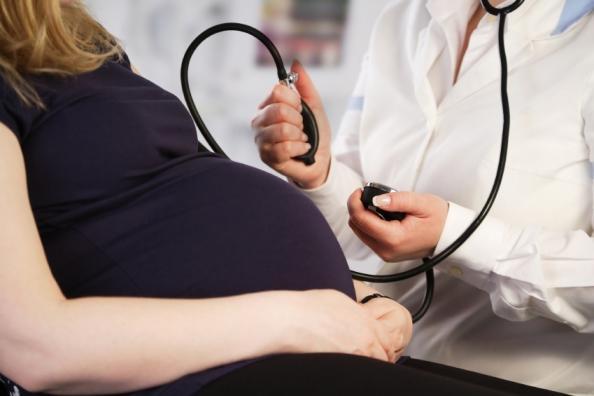A study based on 211 pregnant women given the antiviral drug nirmatrelvir and ritonavir (Paxlovid) during pregnancy for acute COVID-19 infections shows no increased risk of adverse events in the women or their babies and a reduced risk of complications called the maternal morbidity and mortality index (MMMI).
The findings, published today in Nature Medicine, suggest the drug is safe to use in pregnancy and is effective in reducing MMMI risk but not COVID-related hospitalizations.
Adverse events 3 times lower in Paxlovid users
The study was conducted in Hong Kong, where women with confirmed COVID-19 were treated with Paxlovid within 5 days of symptoms beginning, and matched in a 1-to-10 ratio with pregnant women who were not given antiviral treatment. The outpatient study took place among patients diagnosed from March 16, 2022, to February 5, 2023, when Omicron variants were circulating. Outcomes were compared with 1,998 pregnant controls.
MMMI was defined as having one of the following pregnancy complications: vaginal bleeding, high blood pressure, eclampsia or pre-eclampsia, preterm birth, and other adverse outcomes, including HELLP syndrome, which stands for hemolysis (destruction of red blood cells), elevated liver enzymes, and low platelets.
"Any individual components of MMMI events that occurred within 28 days after the index date were considered as event occurrence," the authors wrote. "Over 28 days of follow-up, the cumulative incidences of MMMI were 0.58% and 2.05% among nirmatrelvir/ritonavir users and non-users, respectively."
The cumulative incidences of COVID-19-related hospitalization were 1.40% among Paxlovid users and 1.31% among controls. Twenty-eight women in the study were hospitalized for COVID-19 complications, none of whom had taken Paxlovid.
Out of 28 COVID-19 hospitalizations, 0 Paxlovid users and 18 (66.7%) non-users were hospitalized for pregnancy-related complications.
Fewer poor outcomes
Paxlovid treatment was associated with a significant reduction in 28-day MMMI risk (absolute risk reduction [ARR], 1.47%; 95% confidence interval [CI], 0.21% to 2.34%; relative risk [RR], 0.28; 95% CI, 0.02 to 0.90), but not for 28-day COVID-19-related hospitalization.
In particular, Paxlovid was associated with significant reduction in risks of HELLP syndrome (ARR, 0.10%), preterm birth (ARR, 1.40%), and infection requiring antibiotics (ARR, 0.10%).
Rates of Caesarean section and preterm births were also significantly lower for the group taking Paxlovid, with the drug associated with significant reduction in risks of preterm birth (ARR, 2.70%; RR, 0.10) and Caesarean section (ARR, 1.58%; RR, 0.19).
Further research can explore the treatment effect of nirmatrelvir/ritonavir on various pregnancy-related complications.
With pregnant women almost always exclusively excluded from research studies, this is a rare finding that supports the use of Paxlovid and shows key safety data, the authors noted.
"As SARS-CoV-2 infection during pregnancy may lead to clinical manifestations similar to preeclampsia, such as endothelial dysfunction and intravascular inflammation, further research can explore the treatment effect of nirmatrelvir/ritonavir on various pregnancy-related complications," they concluded.






















